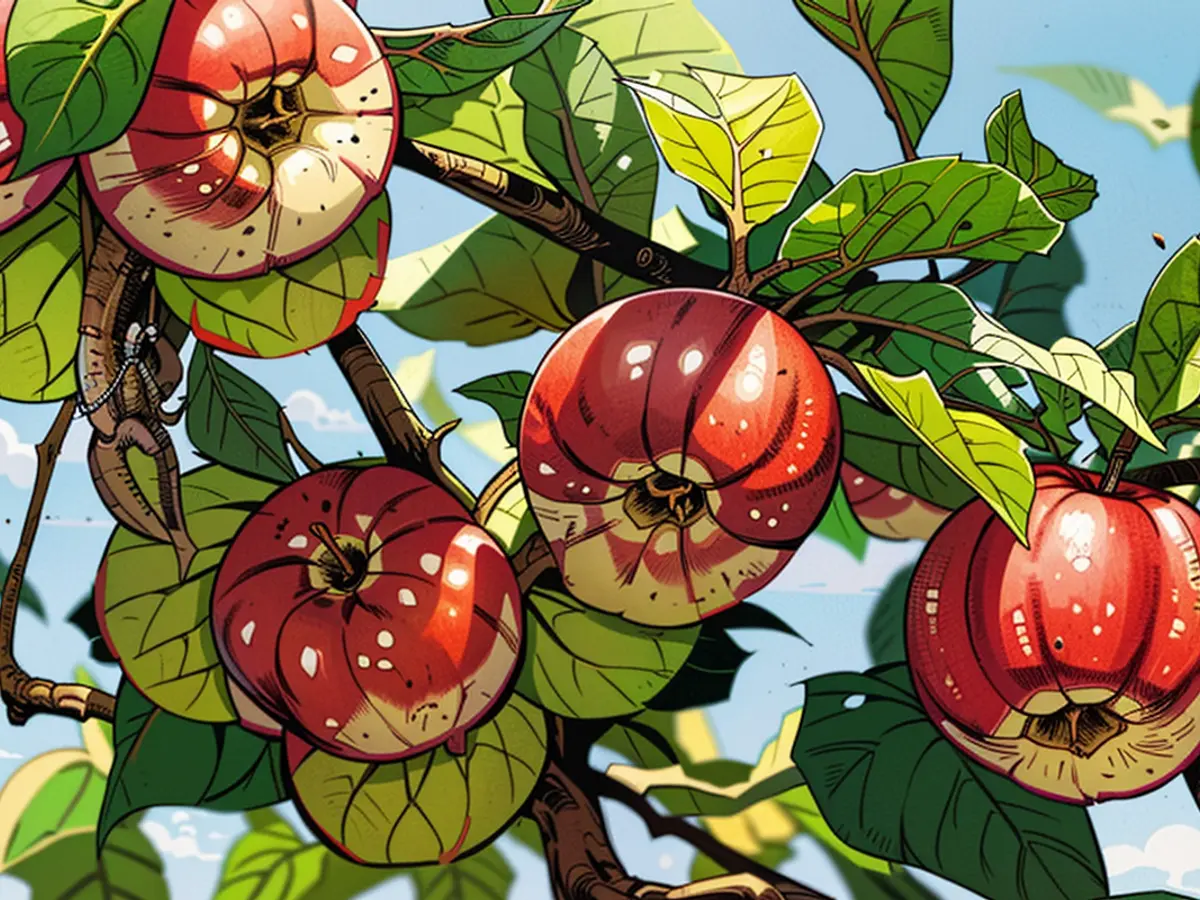- Decrease in apple quantity in the Ancient Land, yet maintaining superior quality.
This year, the Old Country is doing quite well in its apple production. Thanks to the mild climate in the north and advanced irrigation systems that shielded the blooms from frost during the chilly April, forecasts suggest it's performing better than other regions in Germany. As Claus Schliecker from Landvolk Niedersachsen points out, "The quality is good, but we're anticipating a 20% decrease in yield."
Despite the extreme weather conditions, the around 500 fruit growers along the Elbe river don't anticipate such significant setbacks as in eastern Germany. Farmers utilize the irrigation system, primarily used for frost protection, to chill the apple trees during heatwaves and prevent sunburn on the fruits.
Besides the chilly temperatures in the spring, many fruit trees produced fewer fruits this season following a strong year prior – this is typical yearly fluctuations, experts explain. Rather than the usual 300,000 tons, between Hamburg and Cuxhaven, 235,000 tons are estimated for this year.
Farmers ought to obtain a higher producer price due to high production costs, extensive manual labor, and an increased minimum wage, claims Schliecker. The main concern is whether consumers will also bear the cost increase.
By 2024, it's projected that three-quarters of Germany's apple harvest will originate from the vast growing areas in Baden-Württemberg (Lake Constance) and Lower Saxony (Old Country). These two states make up about 60% of the total German apple farming land.
At Knut Schliecker's fruit farm in Drochtersen (Stade district), they're content. "We were a few days late due to the adverse weather conditions in spring, so our blooms hadn't yet opened," farm manager Schliecker explains. The harvest is slightly more plentiful, and the quality is exceptional.
There was adequate rainfall during the winter, and the summer was ordinary. Currently, early apples like Delbar-Estival and Sweetango are being harvested, while in the following week, the primary crop Elstar will join.
In terms of apple production, Baden-Württemberg and Lower Saxony, particularly the Old Country, are expected to contribute significantly to Germany's harvest by 2024, accounting for approximately 75% of the total.
The fruit growers in Lower Saxony, despite a possible 20% decrease in yield, have managed to maintain good quality apples, thanks in part to the advanced irrigation systems in the region.








